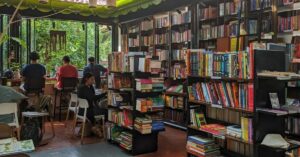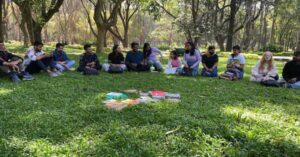Grappling Domestic & Gun Violence, Villages Rally Around Unlikely Agents of Change!
Conceptualised by Navjyoti and executed in association with four volunteers namely Ruchi Dhona, Rajat Dua, Ashima Singh and Vishu Gupta from Bain & Company, Let’s Open a Book, opened eight community libraries. Through the medium of reading, it has been transforming the lives of hundreds of children in these villages.
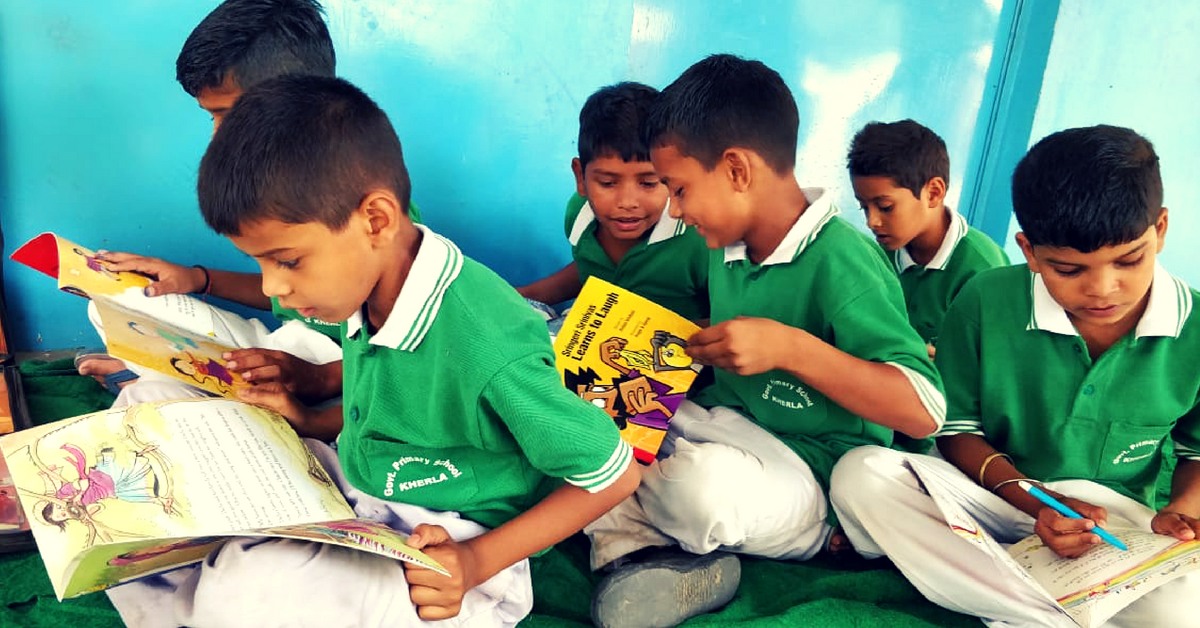
30 years ago, India’s first female IPS officer, Dr Kiran Bedi, and 15 other serving police officials discovered the nexus between drugs and crime in villages around Delhi and Gurugram.
Not only had the men in these villages fallen prey to the drug menace, but even women were involved in drug peddling. The effect was visible on the children in the villages who had turned to pick-pocketing and petty theft.
To prevent crime through social development, the officers came together to establish the Navjyoti India Foundation. What began as a flagship project to tackle the rampant drug problem in these villages through de-addiction programmes, gradually moved to focus on preventive measures.
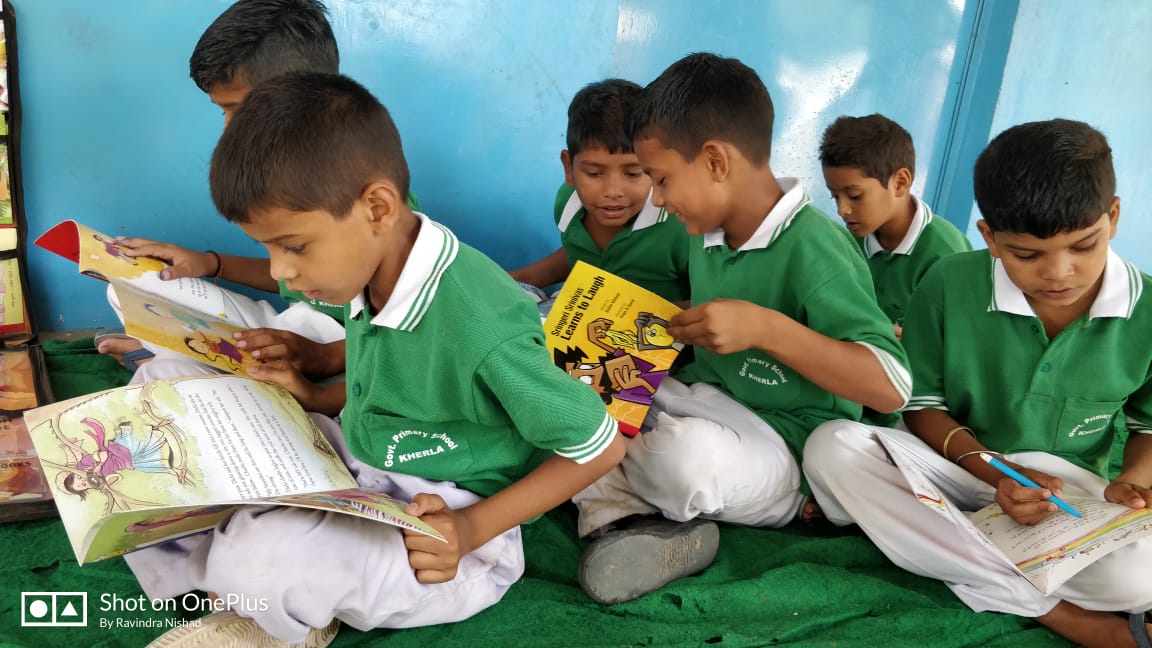
Chandni Bedi, who has been working as Director of Navjyoti’s Rural Management and Training Institute in Gurugram for 15 years, spoke to The Better India about their journey. She said, “As we moved forward, we realised that the needs of the community we had been catering were constantly evolving. And so, we transitioned into different spheres like skill development for rural women and youth, and the child education programme. Whether it is our Navjyoti Bal Gurukul Project for children or helping over 1,500 women from self-help groups, the underlying philosophy of the Foundation is to make the communities we serve, self-reliant.”
One of the successful initiatives of all the projects the Foundation has been running is Let’s Open a Book.
Conceptualised by Navjyoti and executed in association with four volunteers namely Ruchi Dhona, Rajat Dua, Ashima Singh and Vishu Gupta from Bain & Company, Let’s Open a Book, opened eight community libraries. Through the medium of reading, it has been transforming the lives of hundreds of children in these villages.
The idea was born out of the Foundation’s own Bal Gurukul Project, where children from these villages would travel to their NGO’s centre in Bhondsi, Gurugram and be trained in three vital S’ — shiksha (education), sanskar (values) and skills. Once trained to channelise their energies in the right direction, these children would return to the villages of their own accord and train other kids.
“Our youngest trainer under this project is a class 4 child,” beams Chandni.
Extending the concept to promote reading among children who spend a major part of their time in the villages, Chandni spoke to Ruchi, who was a volunteer with Navjyoti at the time.
“I shared the concept of the gurukul with her, emphasising how we could inculcate leadership skills among these children at a young age, using the library as the concept. We already had a library running on our campus. As a team of four, Rajat Dua, Ashima Singh, Vishu Gupta and Ruchi Dhona, then brainstormed about how children could be trained to run community libraries,” adds Chandni, who was their project lead, guide & mentor.
Several meetings followed. Recces to several schools in the villages helped them shortlist eight schools where the project could be kickstarted.
The concept even won the Social Entrepreneurship Award by Bain & Company at its Seeds of Hope competition, thereby helping procure funding.
Speaking to The Better India, Rajat Dua, one of the four volunteers who helped execute the project, said, “We visited each of the eight schools that Navjyoti helped us list. Of these, we realised that only one had a library. Sadly, even that wasn’t functional. In a traditional setting, one may think that the major challenge lies in getting the kids to the library. But we wanted to bring the library to the kids. Leading non-governmental organisation, Pratham Books, helped us with procuring more books for these libraries, who at the time were running mobile libraries of their own.”
Slowly but steadily, the entire team with the help of Navjyoti Foundation, chalked out a detailed plan to set up community libraries, which would then be managed on a day-to-day basis by the children themselves.
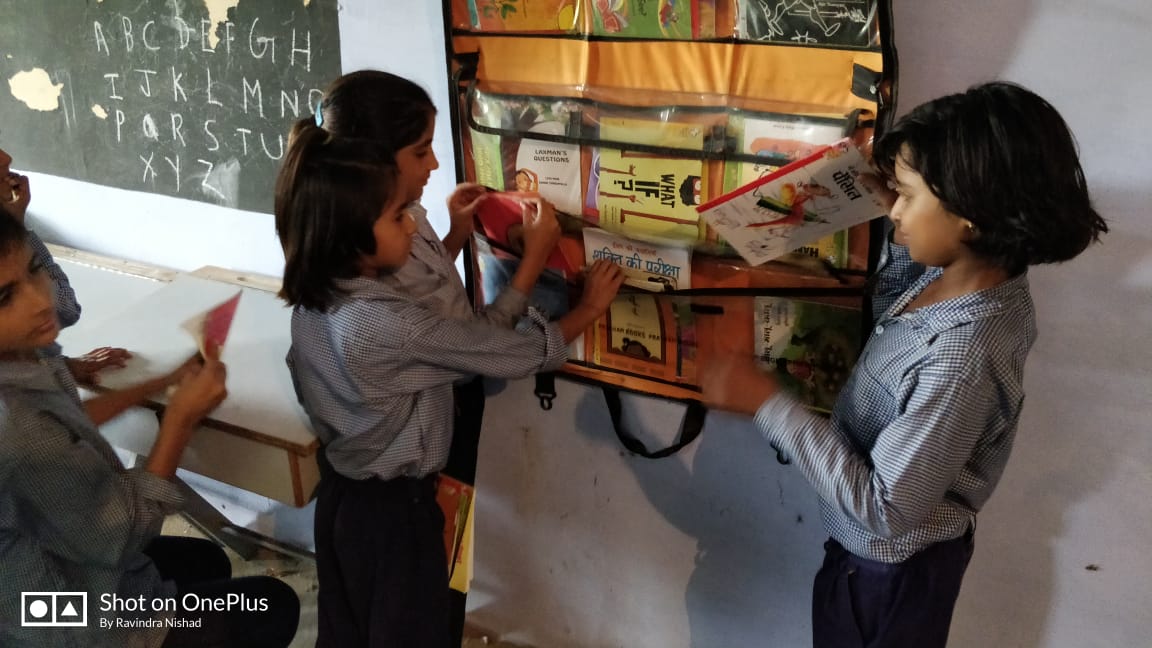
Using the funds, the Foundation hired trainers who helped identify four children from each of the schools who were later trained by Seema Jaiswal, an experienced trainer and a storyteller, who has worked with children for 20 years on how to run community libraries, conduct story sessions, manage records of issuing and return of books etc. Each of the books that were procured from Pratham was handpicked by the team to ensure that the stories they read would help them understand an ideal world.
Read more: Mumbai’s Just Got a Unique ‘Garden Library’ & You Will Love The Experience!
To help sustain the initiative, the students were also asked to train more students from younger batches. While these kids initially served as assistants to the student librarians, they would later take up charge to ensure the smooth and consistent running of the community libraries after their seniors completed school.
Once the community libraries were set up in each of the eight schools, the four volunteers monitored the day-to-day functioning for the next six months. The path to kindling love for reading among the students was riddled with challenges.
“Many of these are in remote locations. And since the education department declared no school days on Saturdays, we were wondered if kids would want to read on those days,” confesses Chandni.
“But the reading enthusiasm among the children marvelled us from day one,” says Rajat.
When the volunteers first met the kids during the library installations, they expressed joy and asked them questions about their favourite books. It was only a matter of time after the installation when the kids would walk up to them with their friends and tell them about the list of books they had read with heartwarming takeaways from each.
Chandni shares, “Many of these schools, even if equipped with computers, wouldn’t have electricity. So under these circumstances, books have the power to become their best friends and change their lives.”
Another challenge though was to maintain consistency. During their monitoring visits at one of the schools, the team realised that the library was installed but it was rusting away. The library had taken precedence over other initiatives.
“We had a discussion with the teachers and authorities of the school, where we raised our concerns. We told them that if they couldn’t continue it, we could take the initiative to another school that could benefit from it. At the next visit, the school and the students had taken charge and were running it more smoothly than ever before,” says Rajat
But overall, the response from most schools was positive. The challenge only lay in setting the ground running. But once it was in place, the initiative was a roaring success.
When I ask them about how these books could have a lasting impact on the lives of the kids, Chandni adds how the kids come from a background where the quality of education is relatively weak. And since children have beautiful minds of their own, they interpret the stories in their ways, and these books help them enhance their knowledge, boost the confidence they lack and teach them values.
Rajat, on the other hand, adds,
“These children come from homes where they witness domestic and gun violence. Reading books can help them separate right from wrong, to strive for a better community, country and world. The model creates a chain where a few kids take ownership and pass on the responsibility to other kids, thus becoming agents of change.”
If you were to visit any of these schools on a Saturday, you’d see them at their schools. They no longer while their time away in their villages; instead, they sit in a circle, each with a different book, reading out loud to the others. If that isn’t the first step towards change, we don’t know what is.
(Edited by Shruti Singhal)
Want to know more about the Navjyoti India Foundation visit their site here or write to them at [email protected]
Like this story? Or have something to share?
Write to us: [email protected]
Connect with us on Facebook and Twitter.
This story made me
-
97
-
121
-
89
-
167
Tell Us More
We bring stories straight from the heart of India, to inspire millions and create a wave of impact. Our positive movement is growing bigger everyday, and we would love for you to join it.
Please contribute whatever you can, every little penny helps our team in bringing you more stories that support dreams and spread hope.






